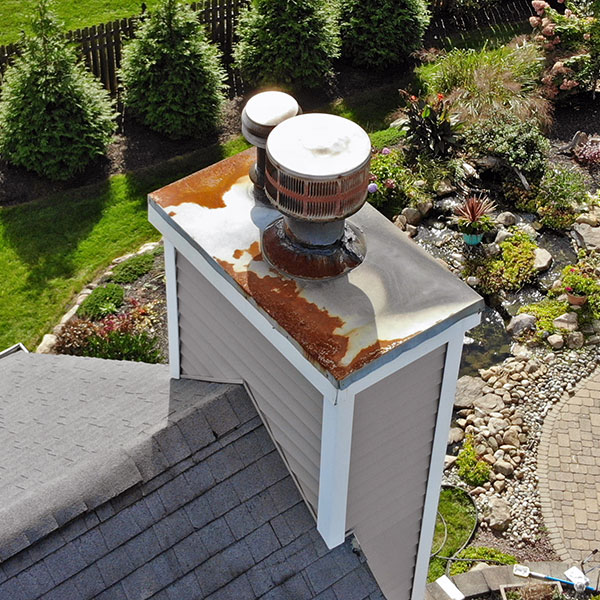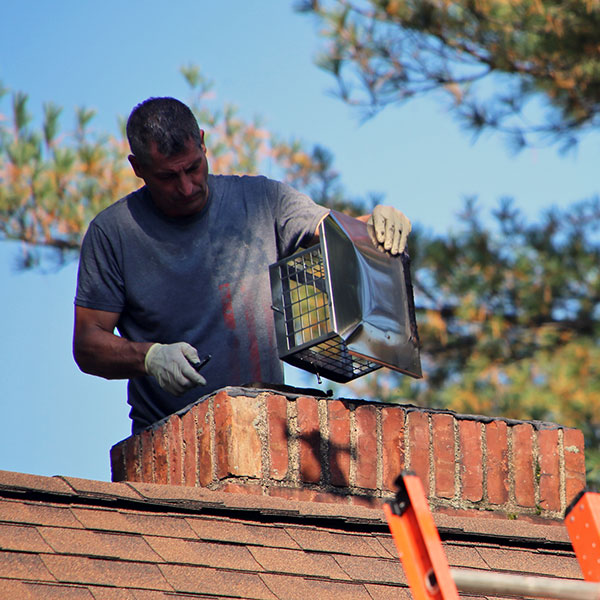How Humidity Affects Your Chimney
It’s widely known that water and chimneys don’t mix. What a lot of people don’t realize is that humidity, which is a less-fluid form of water, isn’t good for chimneys either. National Chimney Cleaners of Fairfield County, CT, and Morris County, NJ, would like to explain how humidity can affect your chimney and how you can address and resolve the problems it has created.
 How your chimney becomes humid
How your chimney becomes humid
There are two primary ways that humidity can exist inside your chimney flue:
Chimney leaks
Even small amounts of rain and melting snow can create humidity in the chimney. Leaks may come through the masonry, the chimney crown or a damaged or missing chimney cap or chase top.
Humidity generated during fireplace use
Fires in the fireplace often produce a certain amount of humidity, which can linger inside a chimney flue.
The effects of chimney humidity
If we’re talking about just a humidity issue rather than major water damage, a clear sign will be chimney odors. Moisture that remains in the chimney will mix with naturally occurring creosote and soot to create a strong, smoky smell that eventually can find its way into your home.
Another odor problem with a humid chimney can be caused by mildew and mold growth. Mold is of particular concern, as certain of its strains are known to cause respiratory and other health problems in some people. Mold thrives in damp, poorly ventilated spaces and can spread quickly to other parts of the home. Finally, odors may originate in the chimney when humidity mixes with tree debris or animal nests and causes them to rot. While creosote and debris can lead to a smelly chimney, there’s a much greater issue with these materials.
The dangers of creosote buildup and flue obstructions
Creosote, which forms when smoke condenses in the flue, is highly flammable and can easily start a chimney fire. The more creosote, the greater the chance of a dangerous fire. Leaves, twigs and other tree debris, along with the nests of small animals, narrow the flue, making it difficult for smoke and combustion gases to move up and away from the home. With enough of an obstruction, smoke can start backing up into the house.
The main concern with backups is the carbon monoxide that’s present in smoke. Carbon monoxide can’t be seen or smelled, but it’s been shown to cause potentially life-threatening health risks for people and animals.
What to do about chimney humidity
The first step is a chimney inspection to fully understand what’s happening. If moisture has caused damage to the chimney liner, the masonry, the fireplace damper or other parts of the system, these problems need to be repaired. If the chimney is leaking, the leaks should be resolved and a waterproof sealant applied to the exterior chimney surfaces. Debris and built-up creosote should be professionally removed to reduce smells, drafting issues and the chance of a chimney fire. If there’s no chimney cap, one can be installed.
 You can’t completely prevent humidity in your chimney flue. The keys to keeping the system safe and in good repair are:
You can’t completely prevent humidity in your chimney flue. The keys to keeping the system safe and in good repair are:
Annual chimney inspections, Annual chimney sweeping, and Repairing of leaks and other issues as soon as you notice them!
Call your Connecticut and New Jersey chimney experts today
If you’re having any kind of problem with your chimney, National Chimney Cleaners is ready to help you resolve it. If you live in Fairfield County, CT, or Morris County, NJ, give us a call at (800) 631-6177. You can also reach out with our handy contact form.

 How your chimney becomes humid
How your chimney becomes humid You can’t completely prevent humidity in your chimney flue. The keys to keeping the system safe and in good repair are:
You can’t completely prevent humidity in your chimney flue. The keys to keeping the system safe and in good repair are: